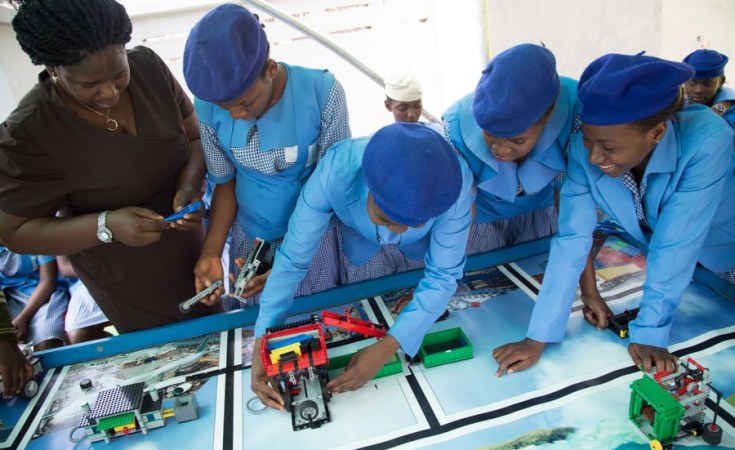Lagos — This article was supported by IDRC.
Role models, mentorship and maternity breaks could help unblock Africa's longstanding gender gap in science and technology, a swathe of research projects has revealed.
Researchers shared these insights during a panel discussion entitled Reimagining African Universities as Gender-Inclusive, a side event hosted by Canada's International Development Research Centre (IDRC) at the African Research Universities Alliance (ARUA) conference held on 16 November at the University of Lagos.
"I run a programme where we have more fellows who are women. It was possible because we have given them a supportive environment," panellist Florah Karimi, executive director of the African Population and Health Research Centre in Kenya, told SciDev.Net.
"We have started putting in place gender-lensed policies that promote more women participation in STEM in East Africa."Florah Karimi, executive director of the African Population and Health Research Centre
"We give them leave of absence when they go for maternity leave so that they are able to come back and continue," she said.
However, despite increased advocacy for women's empowerment in Science, Technology, Engineering and Mathematics (STEM), the UNESCO Institute of Statistics reports that less than a third of the world's researchers are women.
The session aimed to explore gendered trends in STEM programmes and shed light on the systemic and systematic barriers preventing women from full and equal participation in African higher education institutions.
Karimi said the reason for the disparity in numbers include lack of women mentors and role models, sexual harassment, poor employment opportunities due to discrimination, lack of awareness of STEM courses and little or no career guidance.
She urged the formulation of policies that prioritise supervision, mentorship, and role models from the early stages of education. These policies, she said, should encourage women to pursue STEM, provide research funding and scholarships, and ensure equal opportunities for employment and leadership.
By considering factors such as age and maternity leave, these policies aim to dismantle barriers and foster an inclusive and thriving STEM community, she said.
Karimi said that promoting mentorship and role models, even at an early stage of education, plays a crucial role in fighting negative stereotypes.
"Policies that encourage young women to pursue and excel in STEM programmes create more research funding or scholarships for women," she told SciDev.Net.
"We have started putting in place gender-lensed policies that promote more women's participation in STEM in East Africa."
Katie Bryant, Program Officer at IDRC, highlighted the persistent gender inequities within African higher education institutions, particularly in STEM.
Bryant underscored the urgency for a proactive approach in dismantling systemic barriers, and fostering gender inclusivity within the STEM landscape in Africa.
Sharing insights from her research project Women in Engineering Education and Careers in Benin and Ghana, Rose Omari, panellist and deputy director at the Council for Scientific and Industrial Research in South Africa, highlighted the low female representation in STEM in both countries.
Her project reviewed women's participation in engineering programs. It indicated a gradual increase in female enrolment over 18 years, but noted the challenges in achieving gender balance.
Leah Mwangi, project officer at African Population and Health Research Centre, told SciDev.Net that the media plays a role in perpetuating gender stereotypes.
"We have seen some sort of advertisement that portrays an engineer using a male and a nurse using a female," she said.
"The young girls grow up with the idea that certain careers belong to men."
In her project, Eliminating Barriers to Women's Participation in Science - A Study of the African Research Universities Alliance, Roseanne Diab from South Africa's University of KwaZulu-Natal, shed light on the challenges faced by women pursuing science careers in sub-Saharan Africa.
Her study revealed a trend where women in sub-Saharan Africa are concentrated in non-science fields, limiting their opportunities to secure higher-level positions within academia.
This underrepresentation directly impacts women's prospects for leadership roles in universities, hindering their ability to shape the direction of scientific research and innovation on the continent, the project showed.
This article was supported by Canada's International Development Research Centre (IDRC).
This piece was produced by SciDev.Net's Sub-Saharan Africa English desk.


